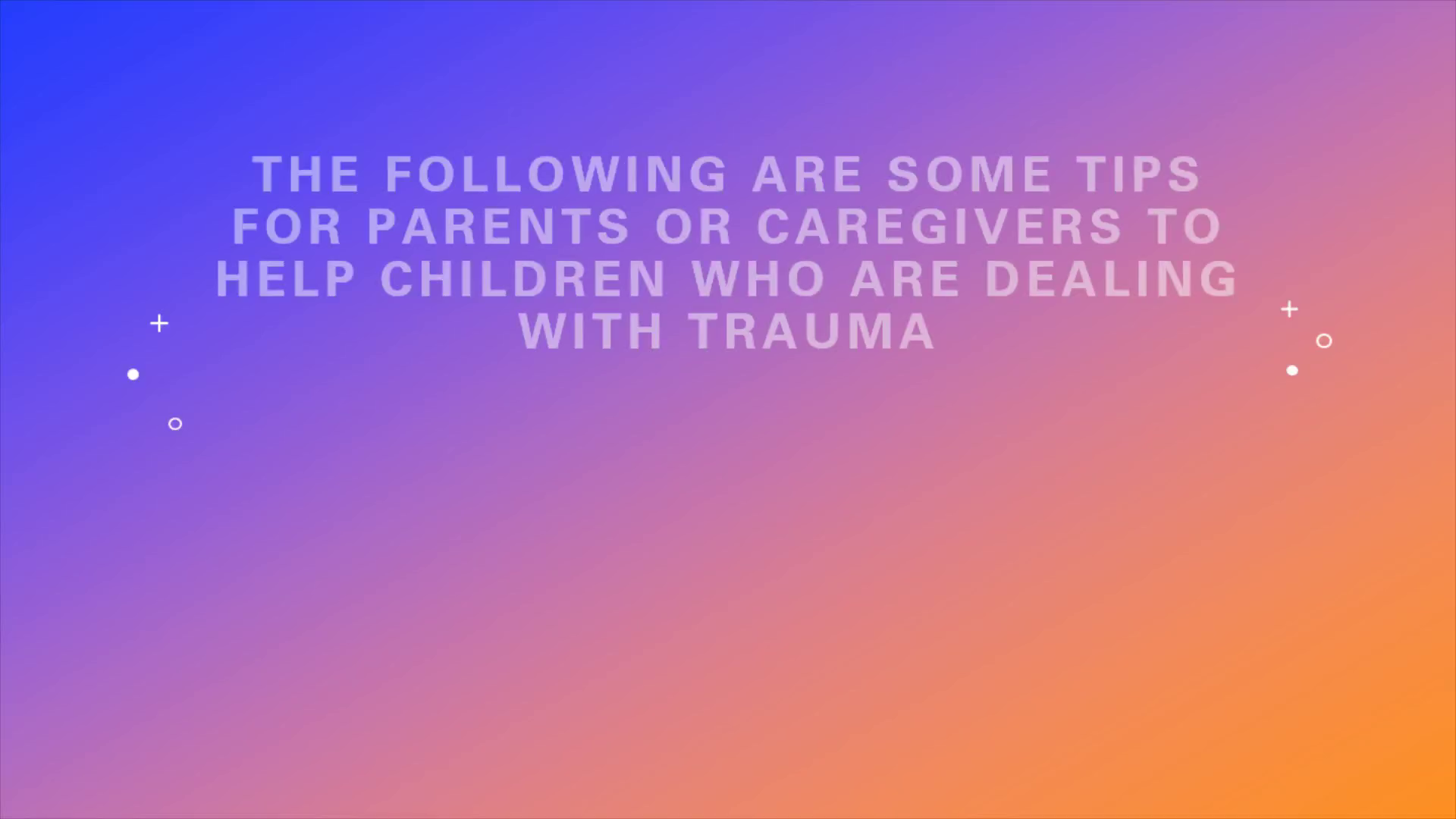
The following are some Tips for parents or caregivers to help children who are dealing with trauma
Scene 1 (0s)
[Audio] Hi Guys. Today I want to share with you some information about an important topic, Trauma. In particular, I want to share some tips for parents and/or caregivers to help children who are dealing with trauma. Let's get started..
Scene 2 (18s)
[Audio] 1. Create a safe and stable environment. Children who have experienced or witnessed trauma need a safe and stable environment to feel secure. Parents can help create this by establishing routines, setting clear expectations and boundaries, and providing consistent support and comfort..
Scene 3 (39s)
[Audio] 2. Listen and validate their feelings: It's important for parents/caregivers to listen to children's feelings and validate them. Children may feel scared, angry, or sad after experiencing trauma, and it's essential to acknowledge these emotions and let them know that it's okay to feel that way..
Scene 4 (1m 0s)
[Audio] 3. Be patient: Healing from trauma takes time, and it's important for parents and/or caregivers to be patient and understanding as a child goes through the process..
Scene 5 (1m 12s)
[Audio] 4. Provide comfort: Providing comfort to children who have experienced or witnessed trauma can help them feel safe and secure. This can include physical touch, such as hugs, as well as verbal reassurance and support.
Scene 6 (1m 29s)
[Audio] 5. Model healthy coping mechanisms: Parents and caregivers can model healthy coping mechanisms, such as exercise, meditation, playing a fun game or talking to a friend to help children learn how to manage their emotions and stress..
Scene 7 (1m 46s)
[Audio] 6. Provide age-appropriate information: Parents and/or caregivers should provide children with age-appropriate information about the traumatic event to help them understand what happened and why they are feeling the way they do. It's essential to be honest but also to avoid overwhelming them with too much information..
Scene 8 (2m 4s)
[Audio] Encourage expression: Encouraging children to express themselves through writing, drawing, or talking can help them process their emotions and feelings about the traumatic event..
Scene 9 (2m 17s)
[Audio] 8. Connect with others: Connecting with others who have experienced similar trauma can be helpful for children to feel less alone and understand that their experiences are not unique..
Scene 10 (2m 30s)
[Audio] 9. Take care of yourself: Caring for a child who has experienced or witnessed trauma can be emotionally and physically draining. It's essential for parents and caregivers to take care of themselves, practice self-care, and seek support when needed..
Scene 11 (2m 49s)
[Audio] And finally, 10. seek professional help: If a child is experiencing severe trauma or symptoms, it's important to seek professional help. A mental health professional can provide therapy and support to help children process and cope with their trauma..
Scene 12 (3m 7s)
[Audio] I hope that you have found this information and format to be helpful. If so, please hit the like button below and subscribe to my channel for additional weekly content.
Scene 13 (3m 18s)
[Audio] And as always, this is Stephen, inspiring minds!.